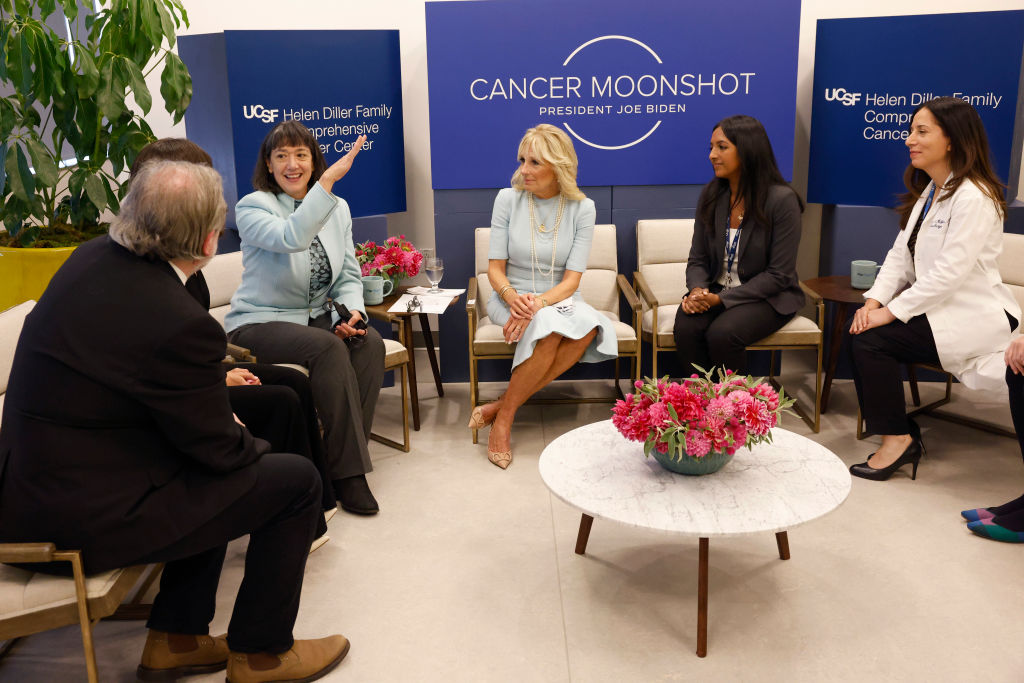
To help you understand what is going on in the health sector our highly experienced Kiplinger Letter team will keep you abreast of the latest developments and forecasts (Get a free issue of The Kiplinger Letter or subscribe). You'll get all the latest news first by subscribing, but we will publish many (but not all) of the forecasts a few days afterward online. Here’s the latest…
There’s been lots of progress in fighting cancer. Mortality rates are down 33% since 1991. Patients who once had to endure a “sledgehammer” approach can now access more and better forms of care. But the medical world still has work to do.
New cancer cases continue to increase and could reach 35 million annually around the world by 2035, up from 20 million in 2022. The U.S. has made progress against some of the deadliest and most prevalent types of cancer, including lung, colorectal, prostate (among men) and breast (among women). At the same time, there’s been an uptick of cases among younger people, particularly of cancers related to rising obesity rates: Colorectal, pancreatic, uterine, etc. Some of these, like pancreatic, still have no proven treatments.
Many lofty goals still seem out of reach. The Biden administration’s Cancer Moonshot hopes to halve America’s cancer death rate within 25 years. Already ambitious, the initiative may also suffer from a lack of political buy-in and thus funding. Further progress will depend on ongoing advancement in cancer treatment beyond the now-standard oncology regimen of surgery, chemotherapy and radiation.
Among the innovations currently inspiring optimism:
Immunotherapy — which stimulates a patient’s immune system against the cancer. One example is CAR-T cell therapy — changing certain white blood cells in the laboratory to fight cancer cells. Already used to treat several types of blood cancer —lymphoma, leukemia, etc — the process will now be refined and its applications expanded. Pharmaceutical companies are also investing heavily in antibody drug conjugates, which use the immune system to better target tumors with chemotherapy drugs.
Cancer vaccines are also in the works, courtesy of Moderna (in collaboration with pharma giant Merck) and BioNTech. Both firms are using the same mRNA tech as in their COVID-19 vaccines. The cancer vaccines show promise in clinical trials. BioNTech’s offering even seems to be effective against hard-to-treat pancreatic cancer.
Cancer screening is another area of focus. A bevy of new blood tests is trying to detect cancer before patients start to show symptoms. Some are focused on one type of cancer, such as Guardant Health’s colorectal test. Others, like GRAIL’s Galleri, aim to test for multiple cancers in one go, though critics say such tests are not infallible. As the incidence of cancer among young people increases, so too will cancer screening.
Advances in cancer treatment will be very lucrative for some companies. For example, oncology is far and away the world’s largest pharmaceutical market, and heavy hitters like Merck, Bristol Myers Squibb and AbbVie are poised to benefit. But patient access could be limited by the high price tag of new therapies.
This forecast first appeared in The Kiplinger Letter, which has been running since 1923 and is a collection of concise weekly forecasts on business and economic trends, as well as what to expect from Washington, to help you understand what’s coming up to make the most of your investments and your money. Subscribe to The Kiplinger Letter.







